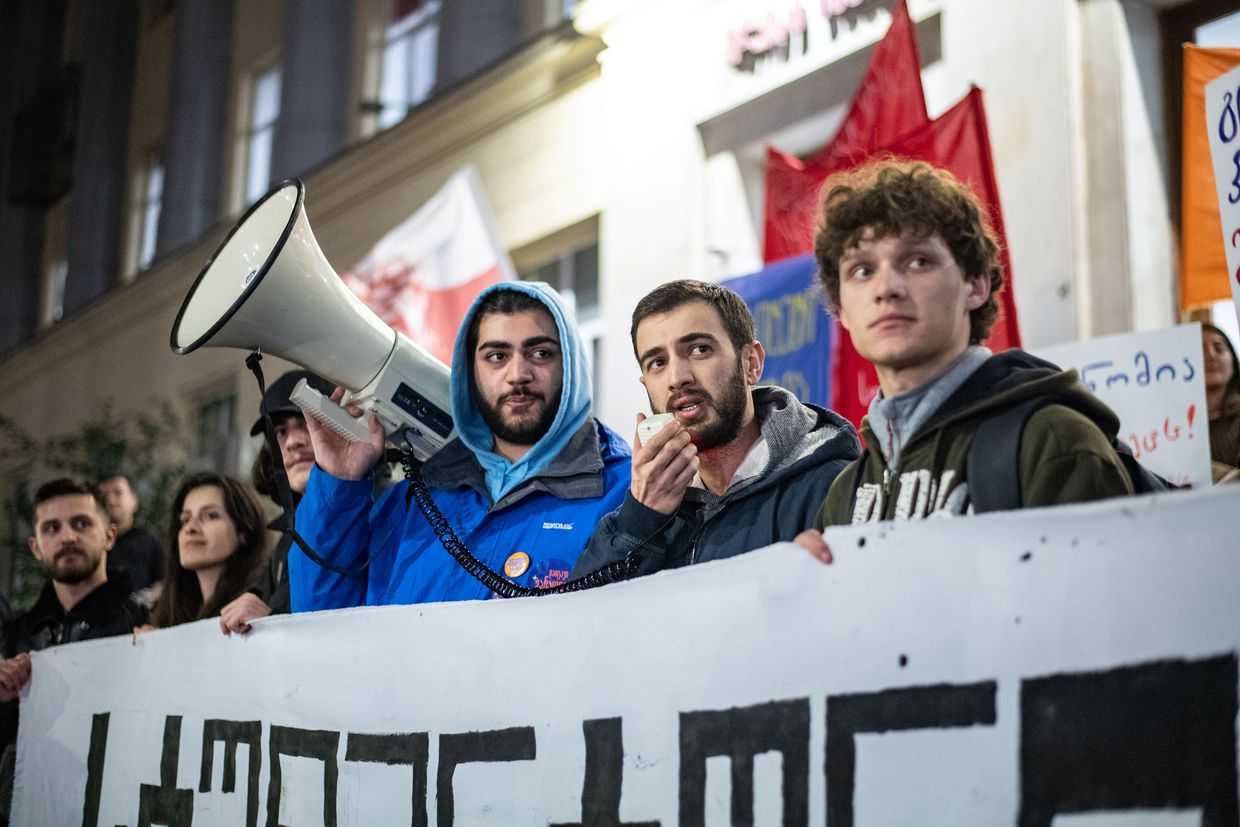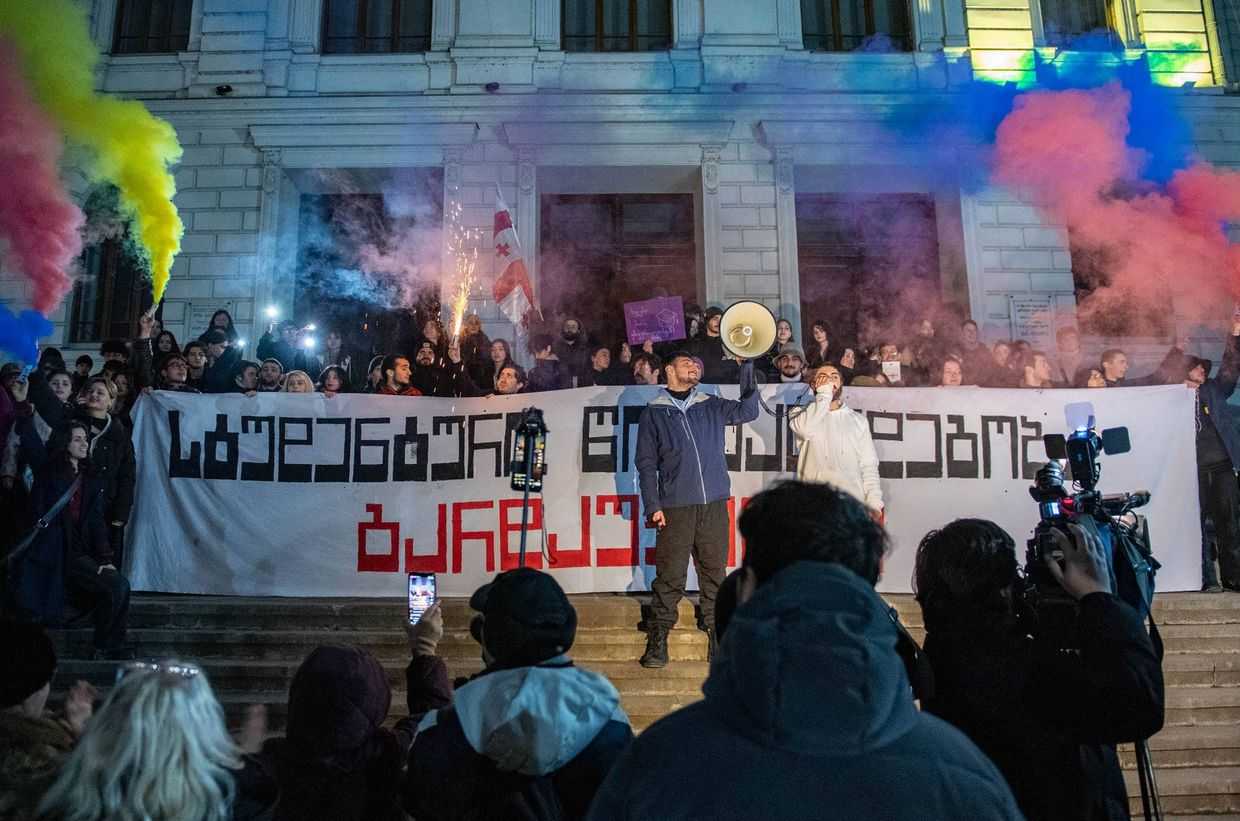
Georgia’s Foreign Ministry has recalled its ambassador to Ukraine for consultations after former Georgian President Mikheil Saakashvili was appointed Chair of the Executive Reforms Committee in Ukraine.
‘I sincerely congratulate Mikheil Nikolozovich [Saakashvili] on the new challenge’, Ukrainian President Volodymyr Zelensky reportedly said upon the appointment.
‘I believe he will be able to give an impetus to the National Reform Council and will help in the implementation of important changes in the country’s life.’
The Georgian government had already protested Saakashvili taking a position in the Ukrainian government as Saakashvili initially claimed he was offered the position of Vice Prime Minister.
‘It is a great honour for me to receive President Zelensky’s proposal to become vice-premier of the government of Ukraine on reform’, Saakashvili wrote on Facebook on 22 April.
Two days later, Georgian Prime Minister Giorgi Gakharia responded with a public statement in which he said that Ukraine was Georgia’s ‘strategic partner’ and that ‘nothing could change’ the relationship between the two countries, nevertheless, Saakashvili’s appointment would be ‘categorically unacceptable’.
Georgian president Salome Zurabishvili elaborated by saying that Saakashvili’s appointment would be ‘an insult to Georgian society’ given that Saakashvili has been convicted by a Georgian court.
In January 2018, Tbilisi City Court sentenced Saakashvili in absentia to three years in prison for abuse of power. Saakashvili was charged for pardoning former Interior Ministry officials who had been convicted in a murder case.
Prior to that, in June 2018, Tbilisi City Court sentenced Saakashvili in absentia to six years in prison for ordering the attack on businessman and opposition MP Valeri Gelashvili in 2005.
Saakashvili has denied all charges against him.
Saakashvili’s political career in Ukraine has been tumultuous. In 2015, he was appointed as governor of the Odesa region by then-Ukrainian president Petro Poroshenko.
The following year he publicly accused Poroshenko of corruption and resigned. In 2017, while living in the United States Saakashvili was stripped of his Ukrainian citizenship leaving him stateless. It was reinstated under Zelensky in 2019.
Chairman of the Executive Reforms Committee
After Saakashvili’s official appointment as the Chair of the Executive Reform Committee on 7 May, Georgian Foreign Minister Davit Zalkaliani said they would recall Georgian Ambassador to Ukraine Teimuraz Sharashenidze to Tbilisi ‘for consultation’.
Georgia’s ruling party played down the significance of the appointment, with Tbilisi Mayor and General Secretary of the ruling Georgian Dream party Kakha Kaladze stating that Saakashvili’s position was ‘superficial’ and that the Georgian government viewed the appointment ‘with scepticism’.
The Executive Reforms Committee is an advisory body created in 2014.
Kaladze also thanked Ukrainian officials for rescinding their official offer of vice-premiership.
In a press briefing, Otar Kakhadze, an MP from the opposition European Georgia party, called on Georgian Dream, not to prioritise their ‘hatred’ over the interests of Georgia.
European Georgia was formed in 2017 by former members of Saakashvili’s United National Movement Party who left over disagreements about his leadership.
Another MP from European Georgia, Sergi Kapanadze, said that the Georgian government’s move to summon the ambassador a ‘completely inexplicable’.
He added that the Georgian government should have just ignored his appointment and that by not doing so they had jeopardised the country’s relationship with Ukraine.
Ukraine’s response
Ukrainian Foreign Minister Dmitri Kuleba told lb.ua that ‘Saakashvili is a citizen of Ukraine and no state in the world can tell us to what position we can appoint or not appoint our citizen’.
‘He is a citizen of Ukraine, who previously held a position in the government here’, Kuleba said, adding that if any ‘drastic steps’ were taken by the Georgian Government, ‘we will survive, and then we will restore everything that has been lost’.
The Ukrainian Foreign Ministry issued a statement insisting they did not see the recall of the ambassador as a ‘threat’ to the ‘friendly’ relations between Georgia and Ukraine.
Ukrainian President Vladimir Zelensky told Unian on 8 May that the decision was part of Ukraine’s domestic affairs and that the recall of the Georgian ambassador was ‘erroneous’, but that it would not seriously affect relations between the two countries.









